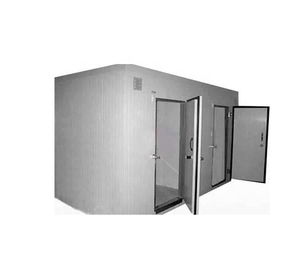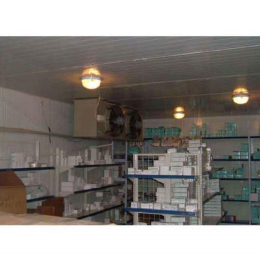
All categories
Featured selections
Trade Assurance
Buyer Central
Help Center
Get the app
Become a supplier

(817 products available)





















































Networking storage solutions are pivotal in the landscape of computer hardware and software, facilitating robust data management and seamless connectivity across diverse environments. These solutions encompass a range of technologies and devices designed to store, manage, and share data efficiently over networks. As businesses increasingly rely on digital information, the demand for reliable titan storage unit has grown, ensuring data integrity, accessibility, and security. Networking storage integrates with existing IT infrastructure, offering scalable options that cater to varying needs, from small businesses to large enterprises. The evolution of networking storage continues to drive innovation, with advancements in speed, capacity, and automation.
Networking storage solutions are diverse, catering to different operational requirements and preferences. Common types include Network Attached Storage (NAS), Storage Area Networks (SAN), and cloud-based storage systems. NAS devices connect directly to a network, providing centralized data access for multiple users and applications. They are ideal for small to medium-sized businesses seeking straightforward storage solutions. SANs, on the other hand, offer high-speed data transfer capabilities and are suited for enterprises with demanding data workloads. Cloud storage solutions provide scalable and flexible options, allowing for remote data access and collaboration. Each type of titan storage unit is designed to optimize data management and enhance operational efficiency.
titan storage unit serve a multitude of functions that are crucial for effective data management and connectivity. They facilitate data sharing across networks, ensuring that information is readily accessible to authorized users. Key features include data redundancy, backup capabilities, and security protocols, which safeguard data against loss or unauthorized access. Networking storage solutions often come equipped with automated data synchronization and replication features, maintaining data consistency across multiple devices and locations. Advanced systems may also support virtualization and integration with other IT services, enhancing overall network performance. The adaptability of titan storage unit makes them indispensable in modern digital environments.
The construction of titan storage unit involves various components and technologies that work in harmony to deliver efficient storage solutions. Core components include hard disk drives (HDDs), solid-state drives (SSDs), and network interfaces, each contributing to the system's storage capacity and performance. HDDs offer large storage capacities at a lower cost, while SSDs provide faster data access speeds and improved reliability. Network interfaces, such as Ethernet ports or Fiber Channel connections, facilitate data transmission across networks. Software components, including operating systems and management applications, are integral to the operation and maintenance of networking storage systems. The choice of components impacts the system's efficiency, scalability, and overall functionality.
Effective utilization of titan storage unit requires understanding their capabilities and limitations. Selecting the appropriate storage solution depends on factors such as data volume, access requirements, and budget constraints. Regular maintenance and updates are essential to ensure optimal performance and security. Implementing robust security measures, such as encryption and access controls, protects sensitive data from breaches. Data backup and disaster recovery plans should be in place to mitigate the risk of data loss. Monitoring and analyzing storage usage can provide insights into performance bottlenecks and help optimize resource allocation. By adhering to best practices, organizations can maximize the benefits of titan storage unit and enhance their overall data management strategy.
When selecting the most suitable titan storage unit for your organization, it's crucial to assess your specific needs and requirements. Consider the volume of data you need to manage, the number of users accessing the data, and the level of performance required. For businesses with high data traffic, a Storage Area Network (SAN) might be the best choice due to its high-speed capabilities. Conversely, for smaller setups, Network Attached Storage (NAS) can offer a cost-effective and efficient solution. Additionally, evaluate the compatibility of the titan storage unit with your existing IT infrastructure to ensure seamless integration and avoid potential bottlenecks.
Security is another paramount consideration when choosing a titan storage unit. Look for solutions that offer robust security features such as data encryption, access control, and regular security updates. These features are essential to protect sensitive information from unauthorized access and cyber threats. Furthermore, consider the backup and disaster recovery capabilities of the titan storage unit, as these are critical for maintaining data integrity and ensuring business continuity in the event of data loss or system failure.
When choosing a titan storage unit, key factors include data volume, user access requirements, performance needs, and compatibility with existing systems. Security features and backup capabilities are also important considerations to protect and preserve data.
Scalability is a critical factor in selecting a titan storage unit because it determines the solution's ability to grow with your business. A scalable solution allows for easy expansion of storage capacity and performance enhancements without significant disruptions or costs.
Common security features in titan storage unit include data encryption, user authentication, access control, and regular security patches. These features help safeguard data against unauthorized access and cyber threats.
Virtualization can enhance a titan storage unit by enabling more efficient resource allocation and management. It allows multiple virtual storage environments to coexist on a single physical infrastructure, optimizing performance and reducing costs.
Cloud-based titan storage unit offer flexibility, scalability, and remote access. They provide an efficient way to store and manage data without the need for significant physical infrastructure, making them ideal for businesses looking to reduce IT overhead and increase accessibility.